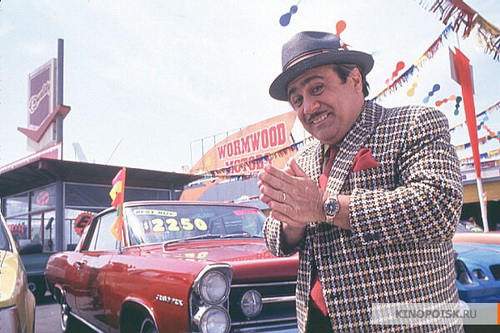Why do stuttering experts tout ineffective treatments, and disparage or ignore evidence-based, effective treatments?
In my blog post The Ph.D. Effect: How Too Much Education Makes Some People Stupid, I explained how cognitive biases lead stuttering experts to have poorer judgment than non-experts. In this blog post I explain why stuttering experts recommend certain ineffective treatments, specifically indirect therapy for preschool children and stuttering modification therapy for older children and adults, and disparage evidence-based, effective treatments.
First, follow the money. Most stuttering experts have private practices. They like treatments that keep stutterers coming back twice a week, at $125/hour, for months or years. In contrast, effective stuttering treatments take days or weeks.
Second, ego drives behavior. Effective stuttering treatments—Lidcombe, vitamin B-1, altered auditory feedback (AAF), MPI therapy—don’t center on the speech-language pathologist. The parents are the primary therapy providers, or a computer provides feedback better and faster than a speech-language pathologist, or a pill or an electronic device enables fluency without any therapy at all. And the era of stuttering clinics run by “the great men” is over. Now most stutterers are treated by generalists, such as school speech-language pathologists. The stuttering experts want to be the stars, so they oppose treatments that push them into a peripheral role.
Third, stuttering experts are the used car salesmen of speech pathology. In 1967, the economist George Akerlof wrote a paper about the economics of used car lots. Editor after editor rejected the paper, saying that used cars were not a proper subject for academic journals. The paper was eventually published in 1970. It became one of the most cited economics papers ever, and Akerlof won the Nobel Prize in 2001.
Akerlof coined the term information asymmetry. Used car dealers knew that some makes and models were reliable but others were lemons. And the seller of a car (or a used car dealer’s mechanics) knows whether a car has major problems.
Consumers had little information about used cars. They didn’t trust used car salesmen, who invariably said that each car was a “peach” previously owned by a little old lady who only drove it to church on Sundays. Honest used car sellers soon grew frustrated with buyers who didn’t believe anything they said, and left the business. Akerlof found that the bad drove out the good.
Last summer at the Friends convention I heard many young people (and their parents) say that “nothing works” and “the experts say there’s no cure,” so they’d given up trying to talk fluently. At the end of the day a young man stood up and said, “Not all speech therapists are bad. There are a few good ones out there, but it’s hit or miss. If you go to therapy and it doesn’t work, don’t give up. Find another speech therapist and see if that works.”
These young people sounded like Akerlof’s 1960s used car buyers. They had no way of knowing which stuttering treatments are effective and which aren’t. They didn’t trust speech-language pathologists and assumed that all (or almost all) are bad.
Surveys by the American Speech-Language Hearing Association (ASHA) find that stuttering is the speech disorder that speech-language pathologists (SLPs) know the least about and like the least. In this environment SLPs who want to enjoy their work go into other specializations. The bad drive out the good.
Used car lots today are far different than what Akerlof found. First, the quality of cars has improved. There just aren’t many lemons today.
Second, because of lemon laws (which used car dealers fought) and the Internet, consumers can now get almost any information about almost any car.
Three years ago I went to a used car lot’s website and found a 2005 Subaru Outback that I wanted. I went to the lot with more information about the car then the salesman had. He tried to take advantage of me; I ended up taking advantage of him and I got the car for $4000 under the Blue Book price. Three years later the car has had zero mechanical problems.
The used car market is now dominated by large companies such as AutoNation (founded in 1996) that provide full information about their cars and deal honestly with their customers. The old, small, dishonest used car lots are largely gone; the few that are left sell only poor-quality cars to consumers without credit.
Stuttering treatment today is where used cars were in the mid-1990s. In the 1980s, car manufacturers focused on quality improvement, and in the mid-1990s these reliable cars were appearing on the used market. Similarly, we now have several effective stuttering treatments. Then in the 2000s the Internet and lemon laws gave consumers information about used cars. I believe that in the next few years, stuttering consumers will use the Internet to find information about evidence-based (effective) stuttering treatments. They will drive the current stuttering experts out of the market, just as consumers drove the old-school used car lots out of business.
Do you trust the stuttering “experts”? Share your experiences in the comment box (below)!



Leave A Comment